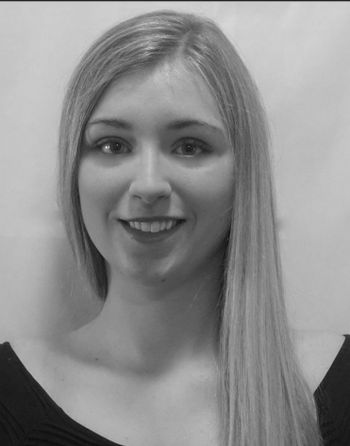Q+A: An executive director's fight against anti-Semitism
Campus Reform spoke with the Executive Director of the Academic Engagement Network (AEN), Dr. Miriam F. Elman, to discuss the role of faculty and administrators in reversing anti-Semitic trends.
Editor’s Note: The following Q+A has been edited for length and clarity
---------------------------------------------------------------------------------------
In 2005, the United Nations declared January 27 International Holocaust Remembrance Day. Since then, the number of incidents of anti-Jewish bias on college campuses has been increasing nationwide.
On this year’s Holocaust Remembrance Day, Campus Reform spoke with Executive Director of the Academic Engagement Network (AEN) in Washington, DC, Dr. Miriam F. Elman, to discuss current events and the role of faculty and administrators in reversing anti-Semitic trends.
Founded in 2015, AEN is a non-profit educational organization with the mission of engaging, educating and empowering faculty and staff to counter anti-Semitism and support a robust dialogue about Israel and Jewish identity in academia. Elman has been the Executive Director of AEN since May 2019.
Gabrielle M. Etzel (GME): What is the Academic Engagement Network, and why was it founded?
Miriam F. Elman (MFE): We help amplify the faculty voice on campus in the face of egregious anti-Semitism and the proliferation of virulent anti-Israel narratives that are not based in fact or reality. There were many student-facing organizations in 2015, but there wasn’t a faculty-facing organization that could help when students had problems and came to faculty for advice and guidance.
We were founded initially to be a resource for Jewish or Zionist students who were being ostracized, demoralized, or shunned to be able to turn to faculty for help. But more recently, we realized that faculty also need to be supported. It’s not just the students who are feeling intimidated….
Faculty also are self-censoring because they fear professional harm if they are known to be Zionists….This is certainly true of the humanities and some social sciences where Jewish Zionist or non-Jewish Zionist faculty are also now feeling that they cannot bring their full-selves into the workplace.
So, AEN’s mission has expanded from being a network of faculty who supports students to [also] being a network of faculty that supports one another.
GME: What is the Improving the Campus Climate Initiative?
MFE: We launched two years ago the Improving the Campus Climate Initiative, which is a nation-wide initiative to train mid-level administrators, not just chancellors or presidents…on what is Jewish identity, what is Zionism, and explain to them what Israel-related anti-Semitism looks like. What do students feel when there is demonization of Israel and how does it attack their identity?
We encourage administrators to acknowledge [that an anti-Jewish protest or instance of discrimination] was hateful and hurtful and do something about it, develop an action plan for educational remediation. Just being silent in the face of that when you wouldn’t be silent if any other community faced that kind of [action is wrong].
GME: Are there any success stories from the program that you would like to share?
MFE: Almost 1,000 administrators have been exposed to our different types of training…and now we are beginning to see faculty and administrators who go through our program are making serious changes on their campuses. For example, they are bringing anti-Semitism awareness into their anti-bias training. If [universities] mandate anti-bias training for students, we want to see anti-Semitism awareness in [the trainings].
GME: How would you say the work of opposing anti-Semitic and anti-Zionist rhetoric interacts with the need to preserve academic freedom?
MFE: We are seriously committed to campus free expression. A lot of the very hostile and hateful rhetoric against Zionists and Zionism is constitutionally protected at public universities. That doesn’t mean that university leaders or faculty shouldn’t say anything. You can criticize hateful speech; you’re supposed to do that. It’s about bringing better speech to bad speech.
GME: As a whole, do you think the Diversity, Equity and Inclusion movement sufficiently addresses anti-Jewish Bias?
MFE: There is much more work that needs to be done. In our training and in our programming we are actually showcasing problems of current DEI models and frameworks that are part of the problem. There’s some really worrying models where Jews are being stereotyped as powerful, privileged, and white. The way that animates anit-Semitic conspiracy thinking is something we are underscoring and showcasing.

